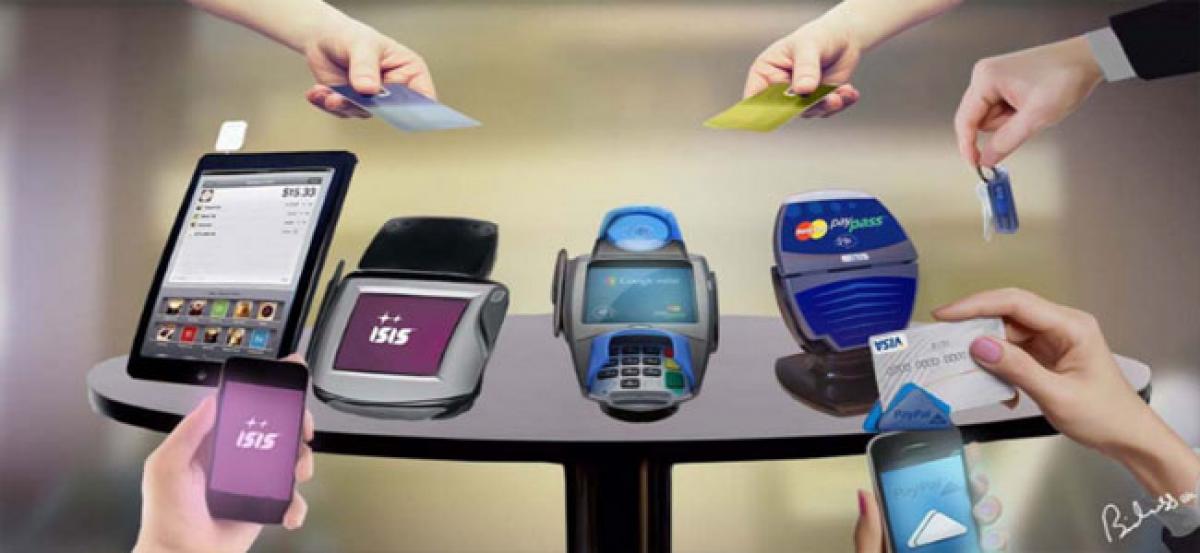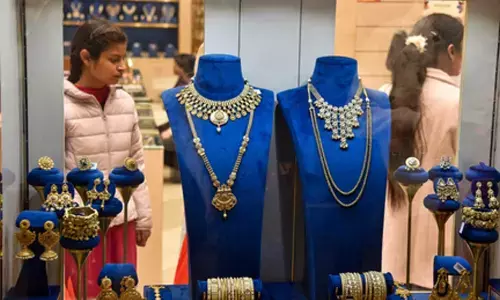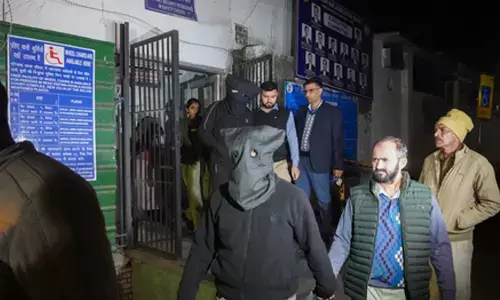Digital payments decline due to additional burden

Digital transactions, which gained prominence post demonetisation, have started declining largely indicating return of people\'s preference for cash. Digital payments took a back seat after the cash situation has improved in the last 2 to 3 months.
Tirupati: Digital transactions, which gained prominence post demonetisation, have started declining largely indicating return of people's preference for cash. Digital payments took a back seat after the cash situation has improved in the last 2 to 3 months.
The Point of Sale (PoS) machines at shopkeepers wereDigital payments decline due to additional burden not seen nowadays at least in small and medium business establishments as neither them nor the buyers were interested in digital payments.
The additional burden on the digital transactions in the form of commission or transaction processing charges is one of the prime reasons for the declining of digital transactions. For instance, on the online booking of darshan tickets in Tirumala, pilgrims must pay processing fee in addition to GST.
If a pilgrim books two special entry darshan tickets worth Rs 600 through the SBI epay system, he has to pay Rs 6 as transaction processing charges and Rs 1.08 as GST, which will cost him Rs 7.08. The pilgrims say government has to reduce the additional burden like processing fees etc., if at all they want to encourage online transactions.
After central government had announced demonetisation of Rs 500 and Rs 1,000 currency notes on November 9, 2016, people were left with no money in hand and several restrictions were in place to draw their money from the banks or ATMs. The buzzword Digi-pay came into lime light and it was used extensively by everyone.
Banks have issued number of swiping machines and umpteen number of small outlets have provided Paytm machines. Since cash was hardly available, people relied on digital payment system in a big way.
Once cash started flowing in to the hands of the people, they were not showing any interest in digital payments as many find it as a waste of time. They were simply giving cash for their purchases. Every bank came forward in issuing PoS machines to the vendors and shop owners. They gave the machines to the vegetable vendors at Rythu Baazar in Tirupati. The machines are safe with them even today but not registering any transactions regularly.
Indian Bank, which is the lead bank in the district, has issued 579 PoS machines after demonetisation. The bank sources said not even 50 per cent were in use now. State Bank of India (SBI) has issued more than 300 PoS machines during the last three months but the percentage of usage was very less.
When asked a vegetable vendor in Rythu Baazar about the digital payment, she said no one is asking for it. Still, they have to pay to the bank the monthly charges towards net which costs around Rs 180-Rs 200. Many shopkeepers were saying that they have to pay the service charges for every transaction to the bank concerned, which they need to collect from the consumer.
In Tirupati Railway Station, Digi-pay system was introduced amidst much fanfare on March 25, by giving wide publicity. It was said that passengers can use even wash room or cloak room facilities by using Paytm. They announced Tirupati railway station as 100 per cent Digi-pay station. Now one cannot find any cashless transactions there.
A shopkeeper in the station said that passengers will be in a hurry and not interested in swiping the cards. In the ticket booking counters normally unreserved tickets will be purchased which involves lesser amounts and mostly cash transactions were taking place for that also.
Unless government takes a fresh look into the issue, and come out with some incentives for cashless transactions, digital payments will decline further said a passenger Ramakrishna from Visakhapatnam.
By V Pradeep Kumar









